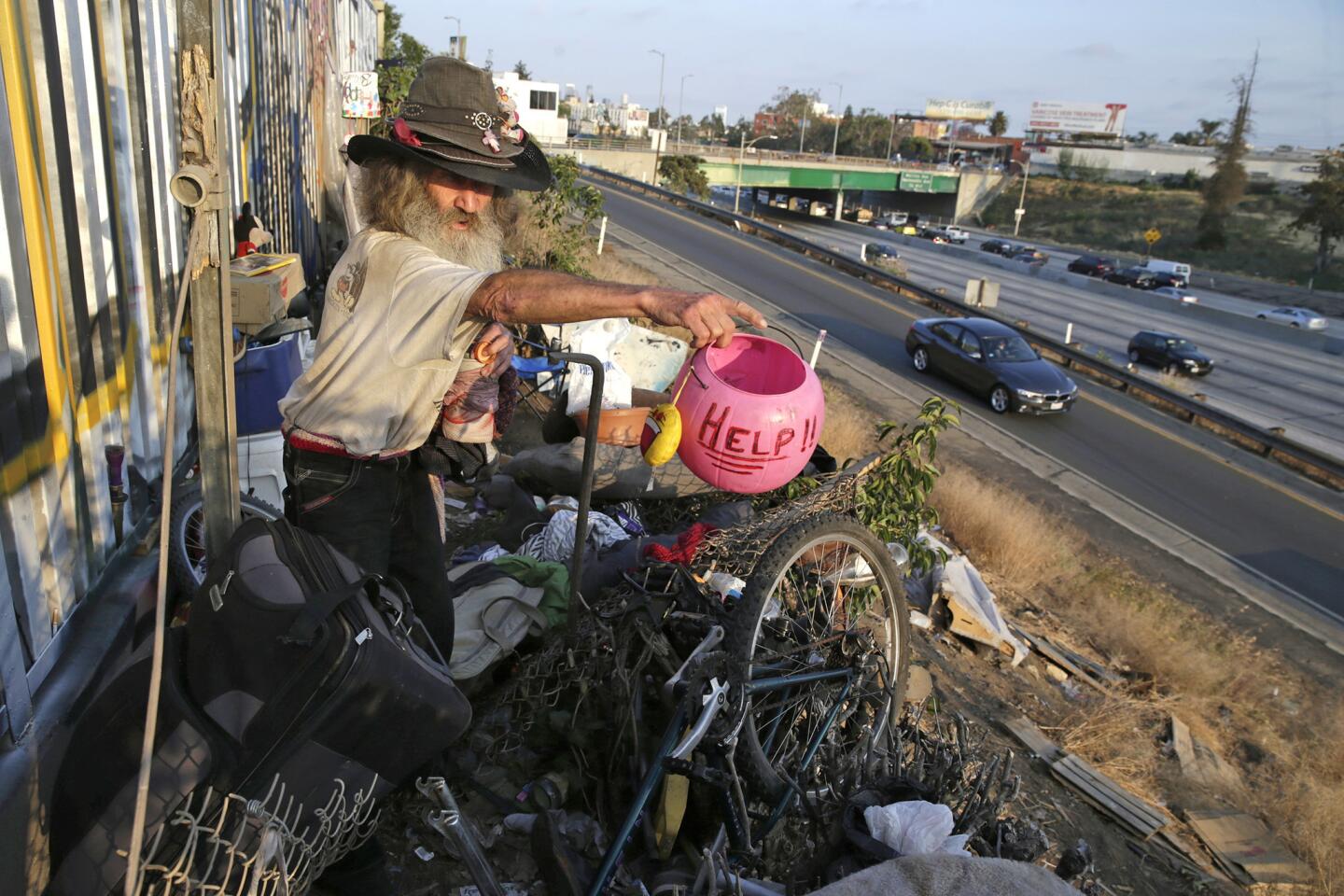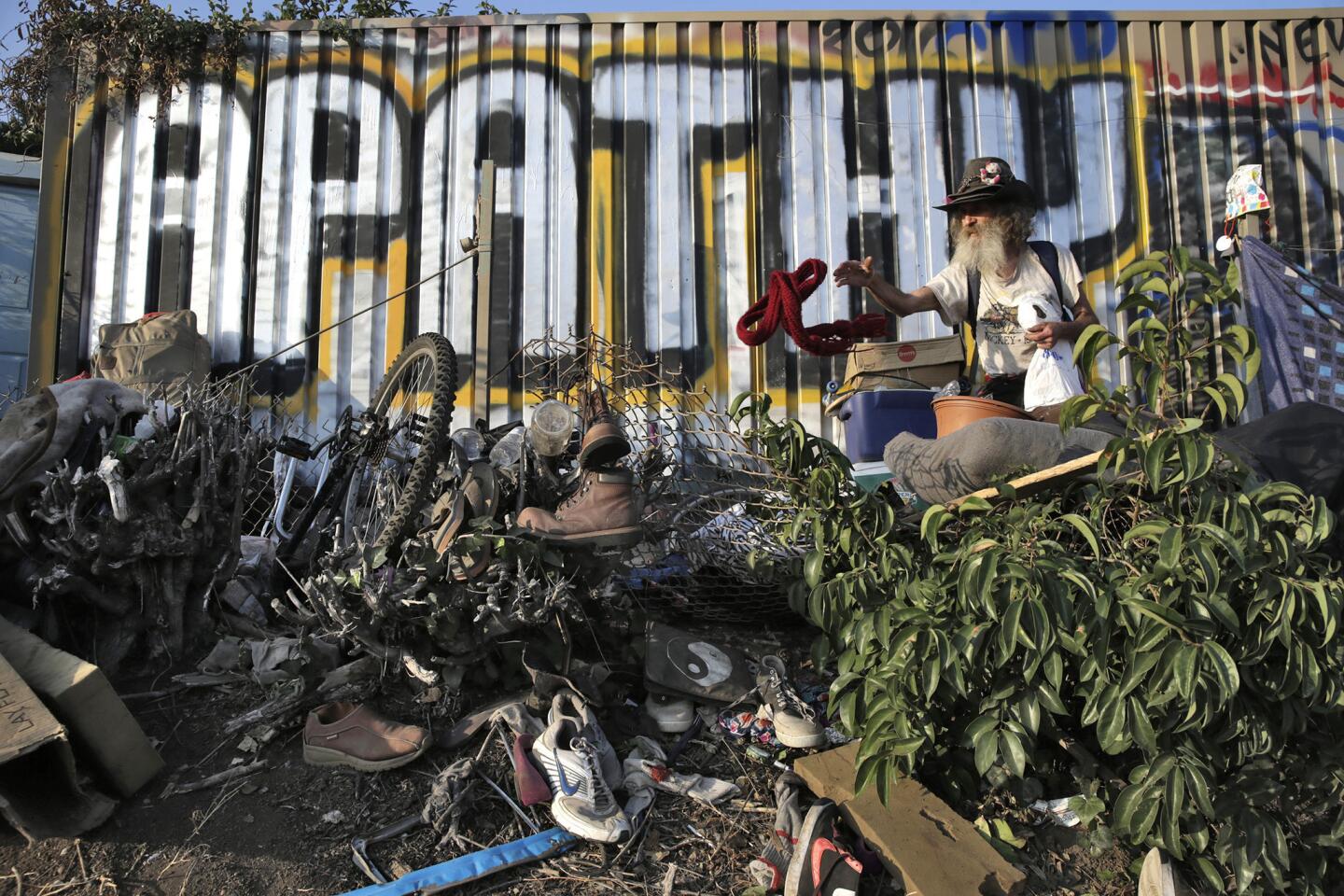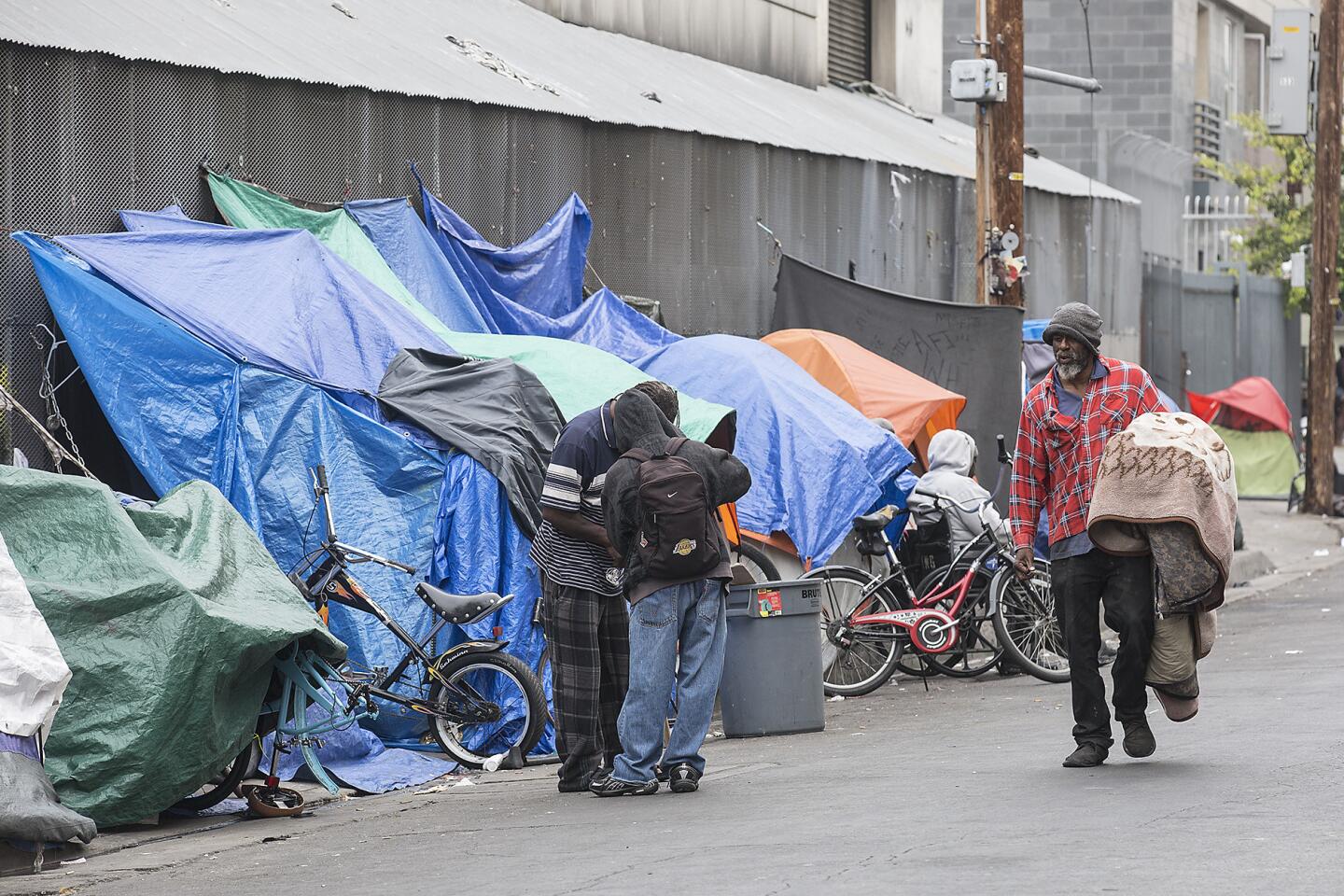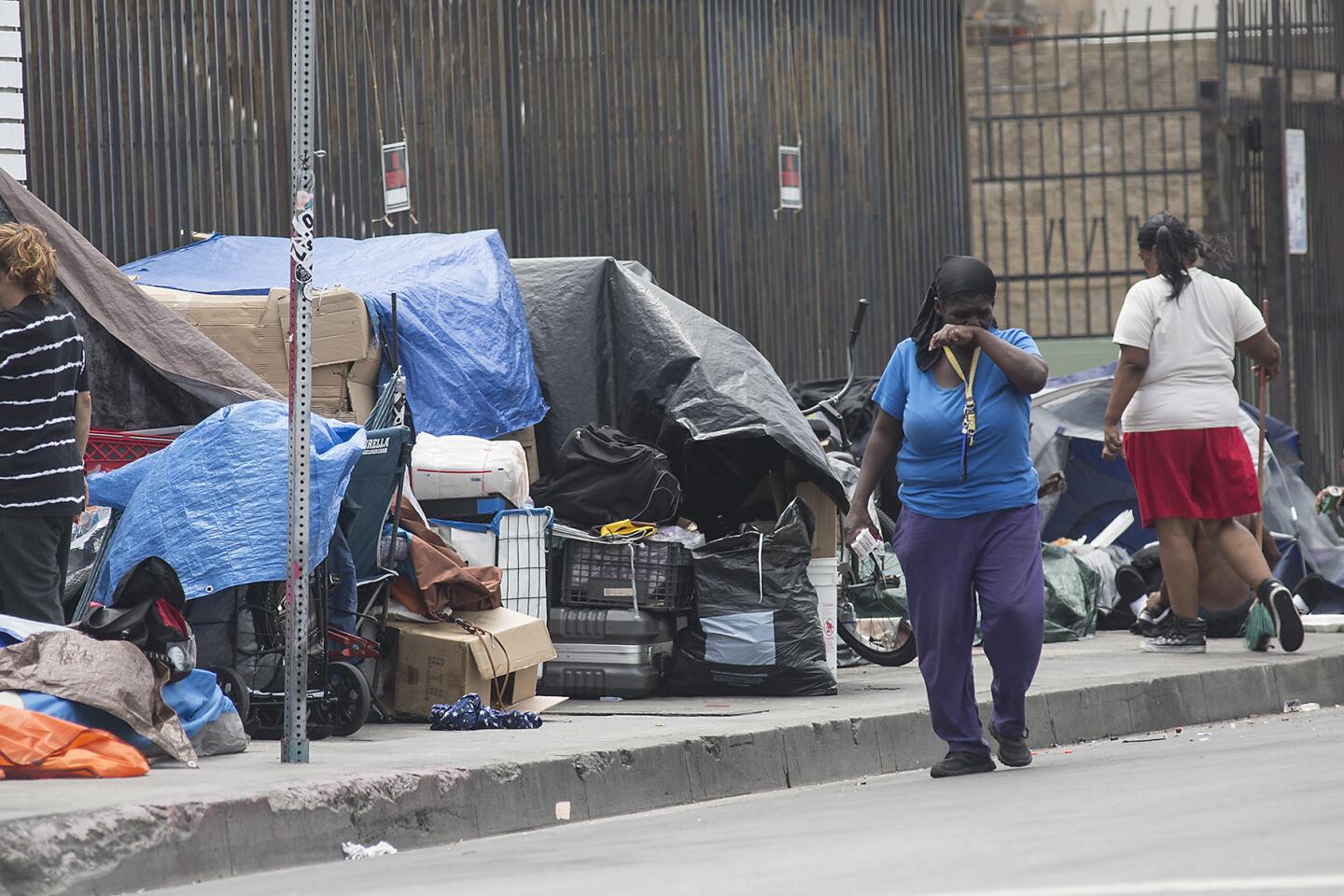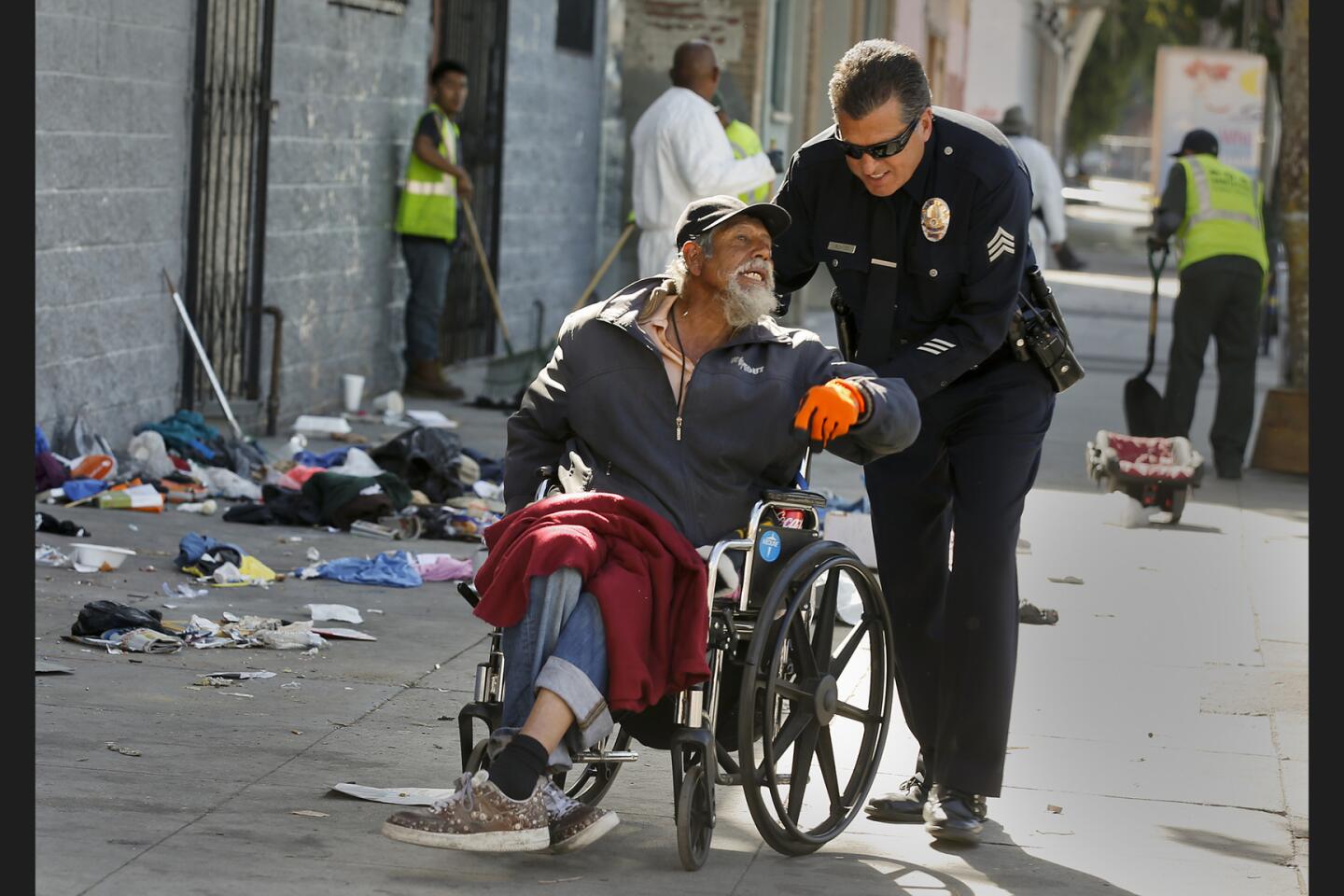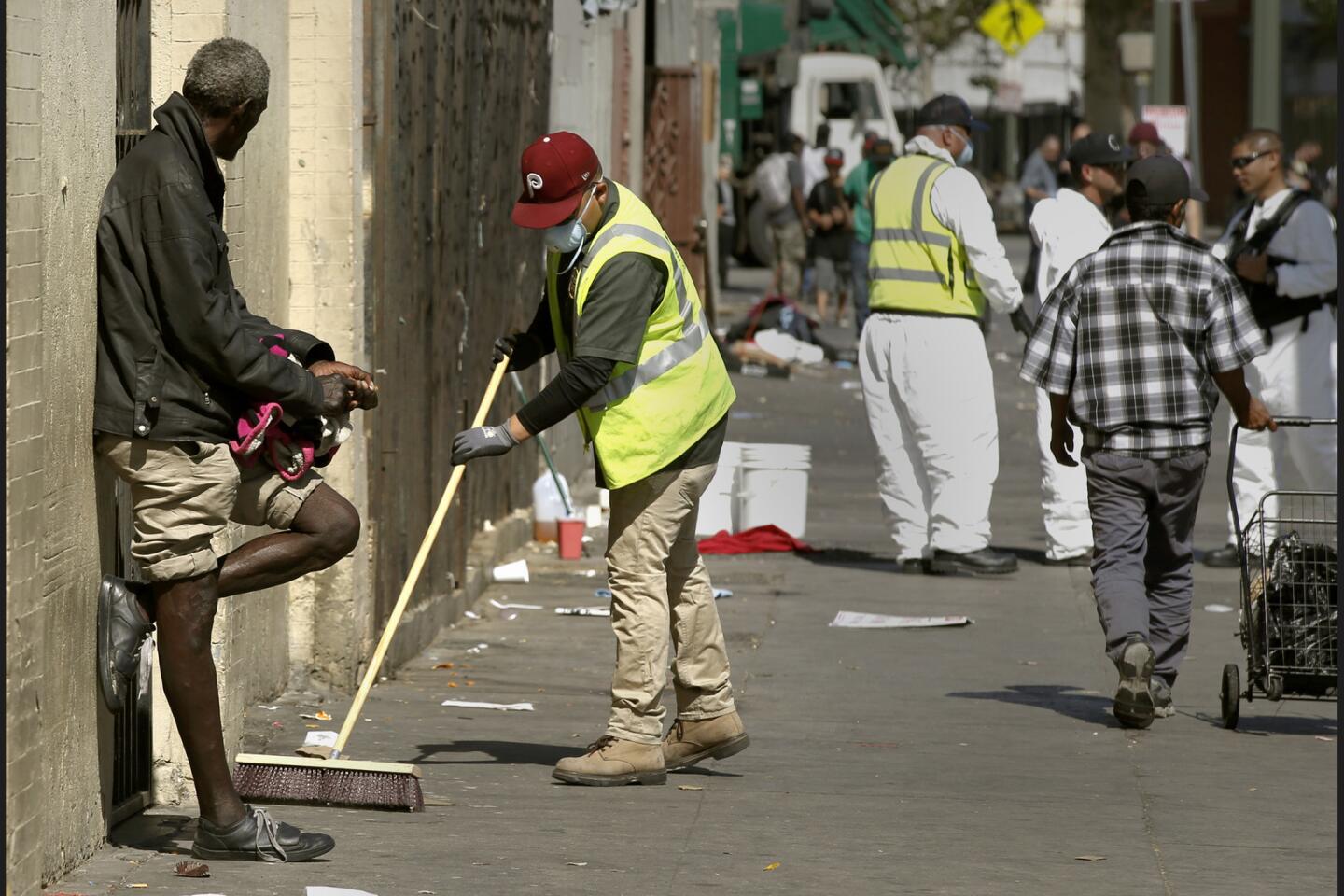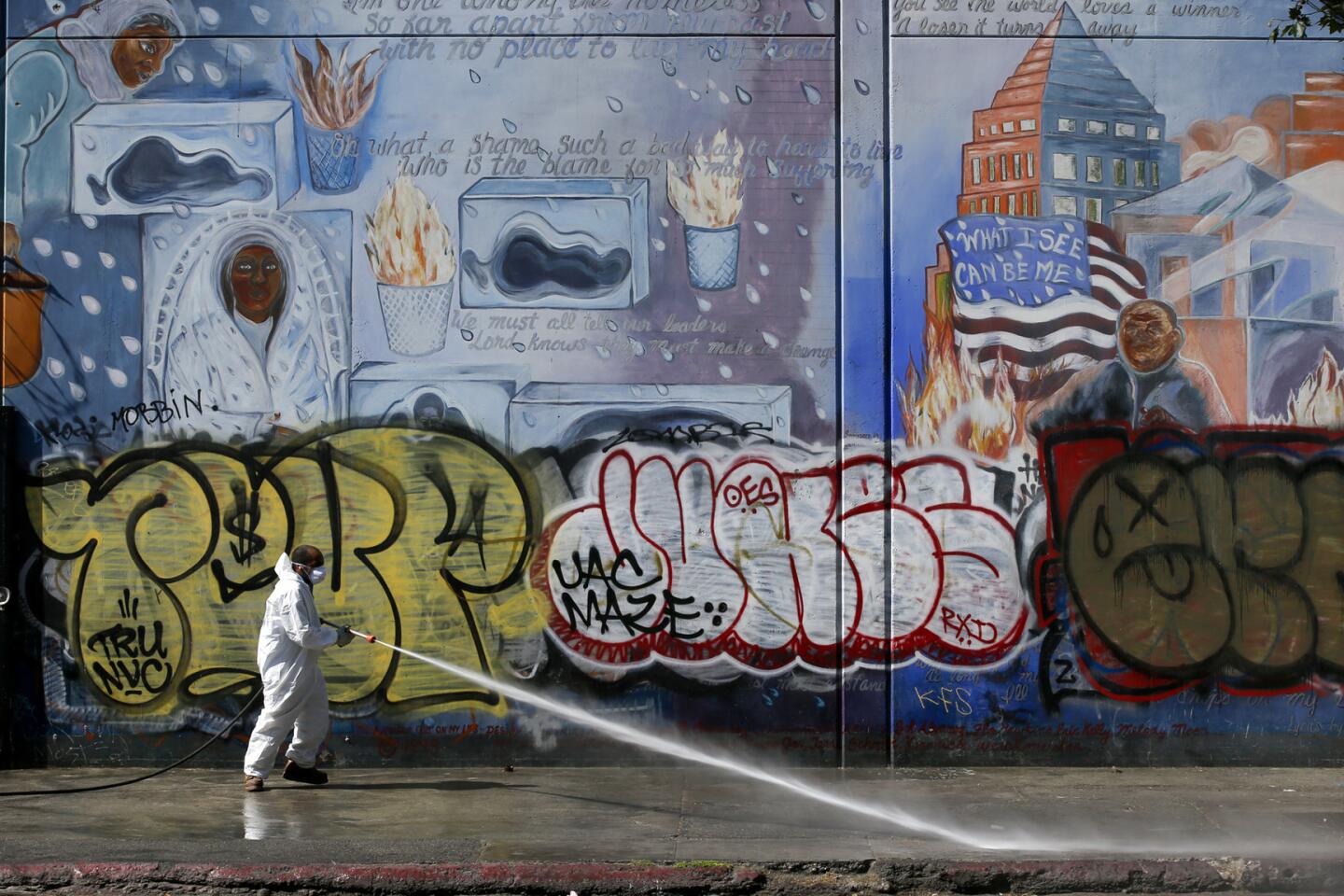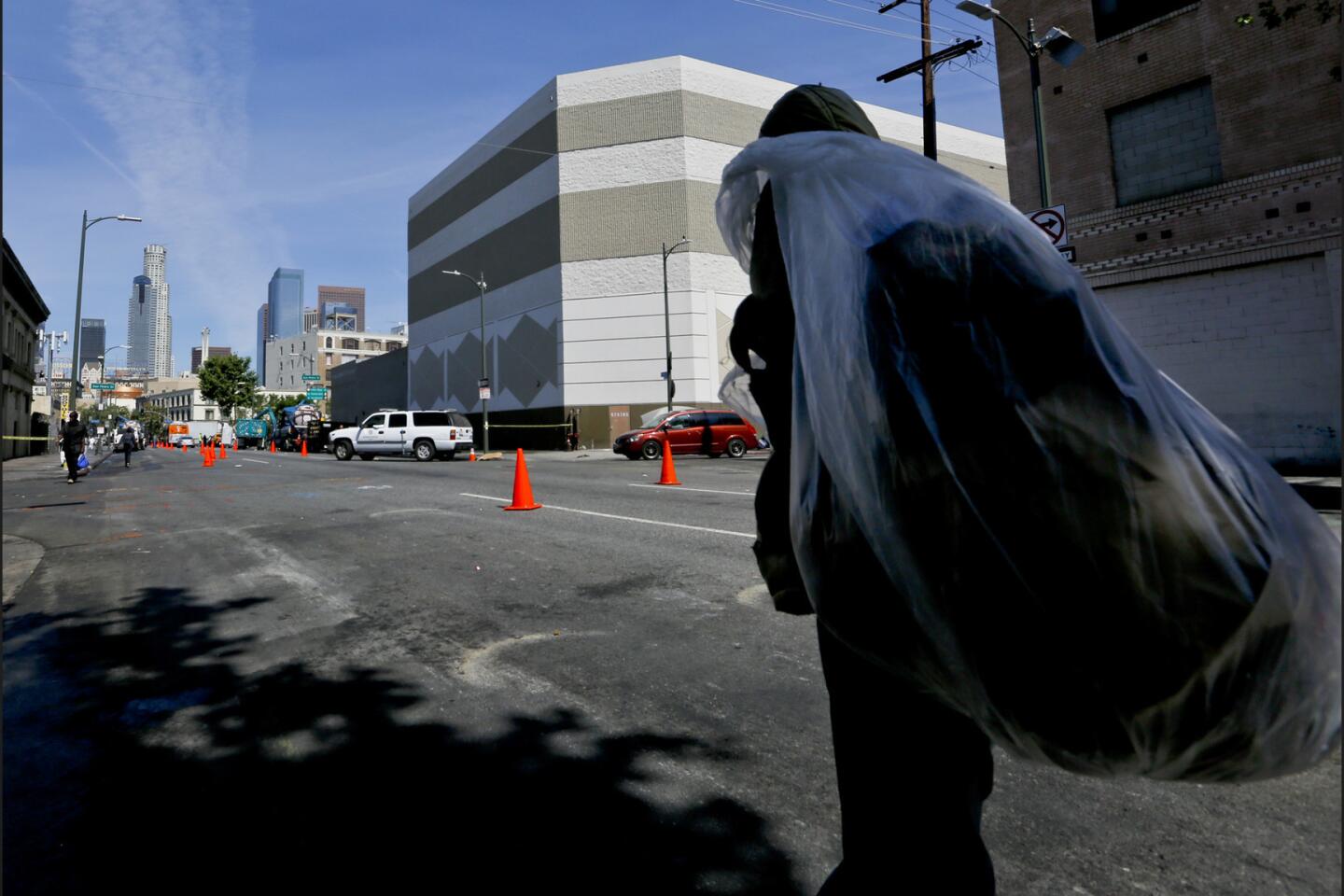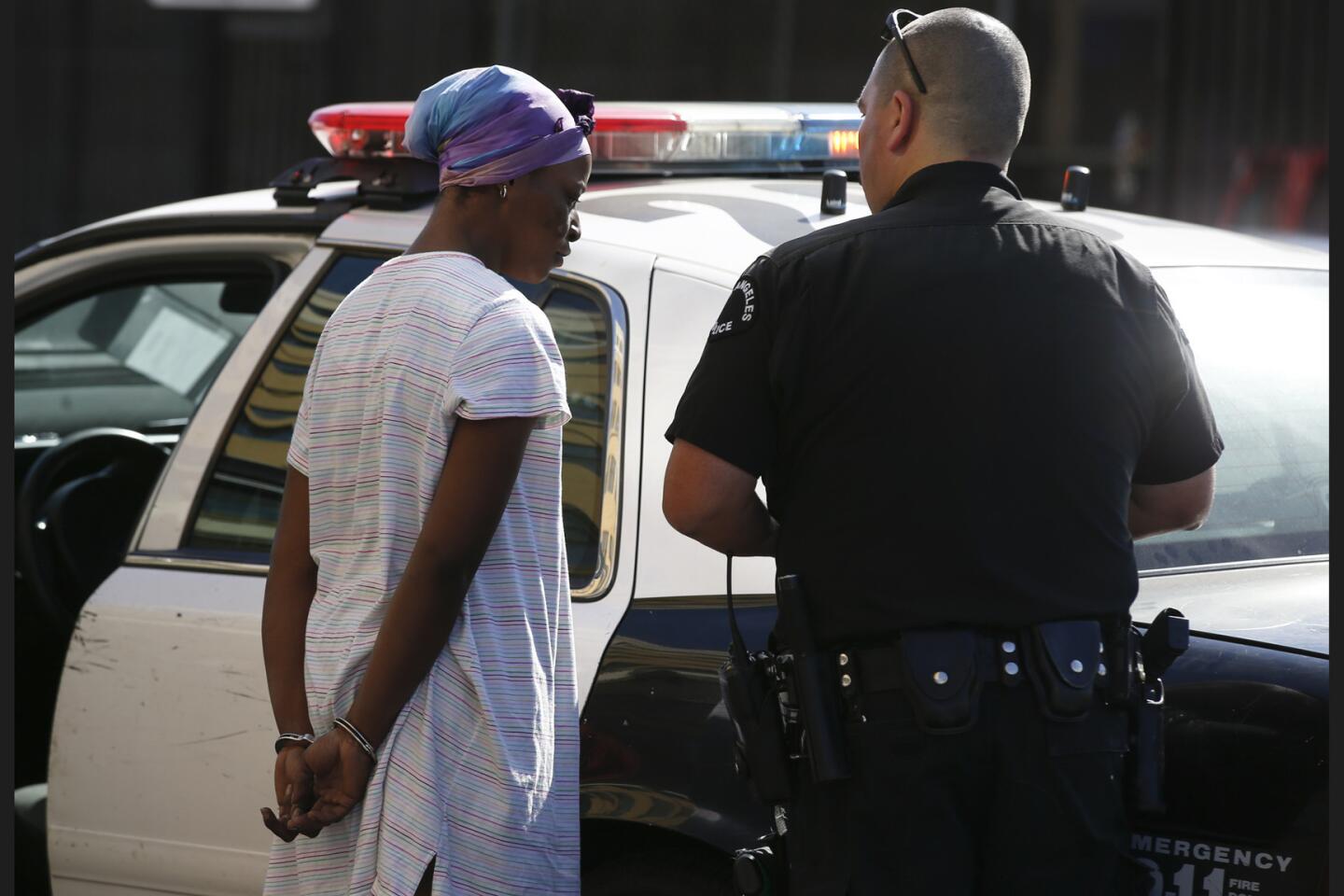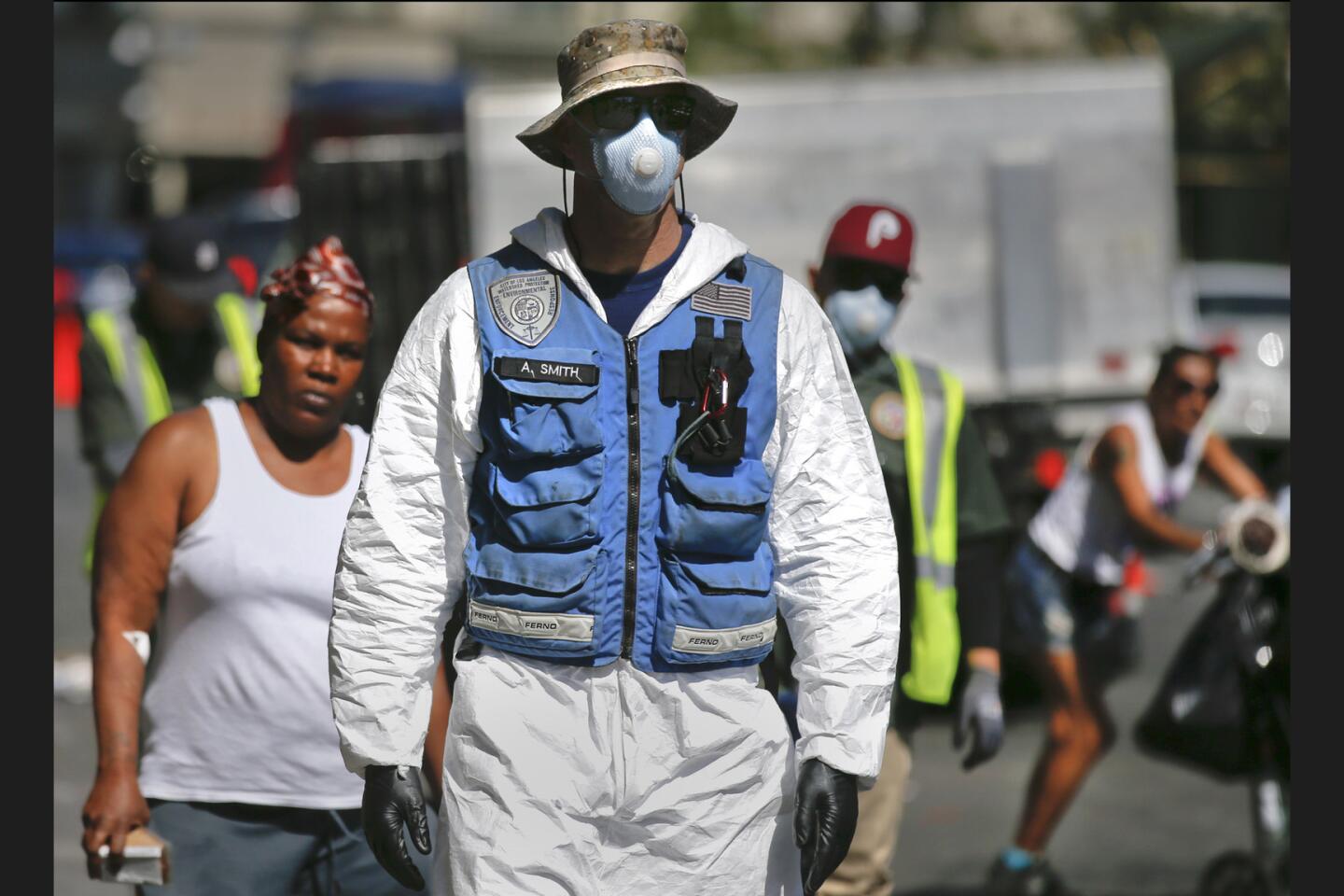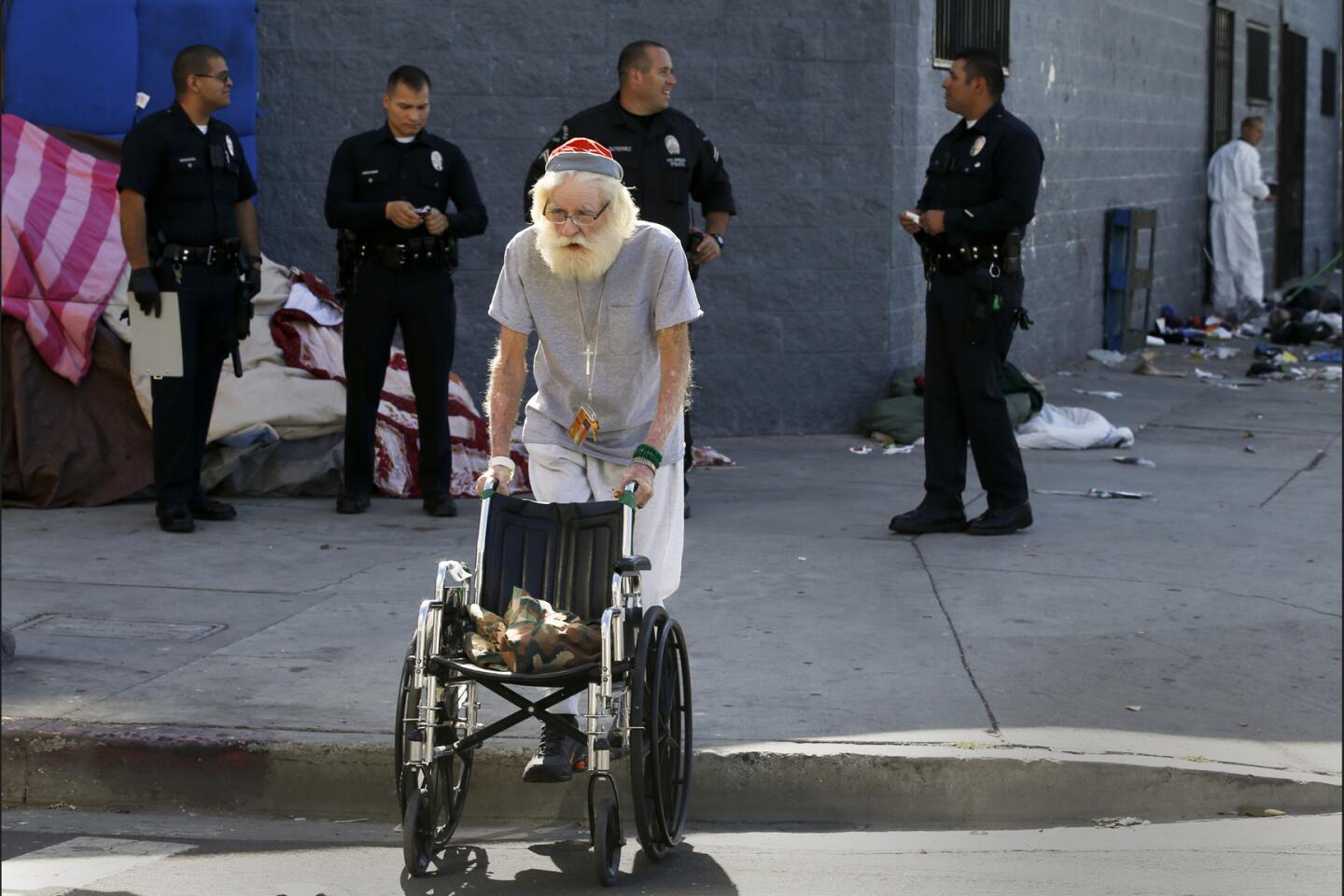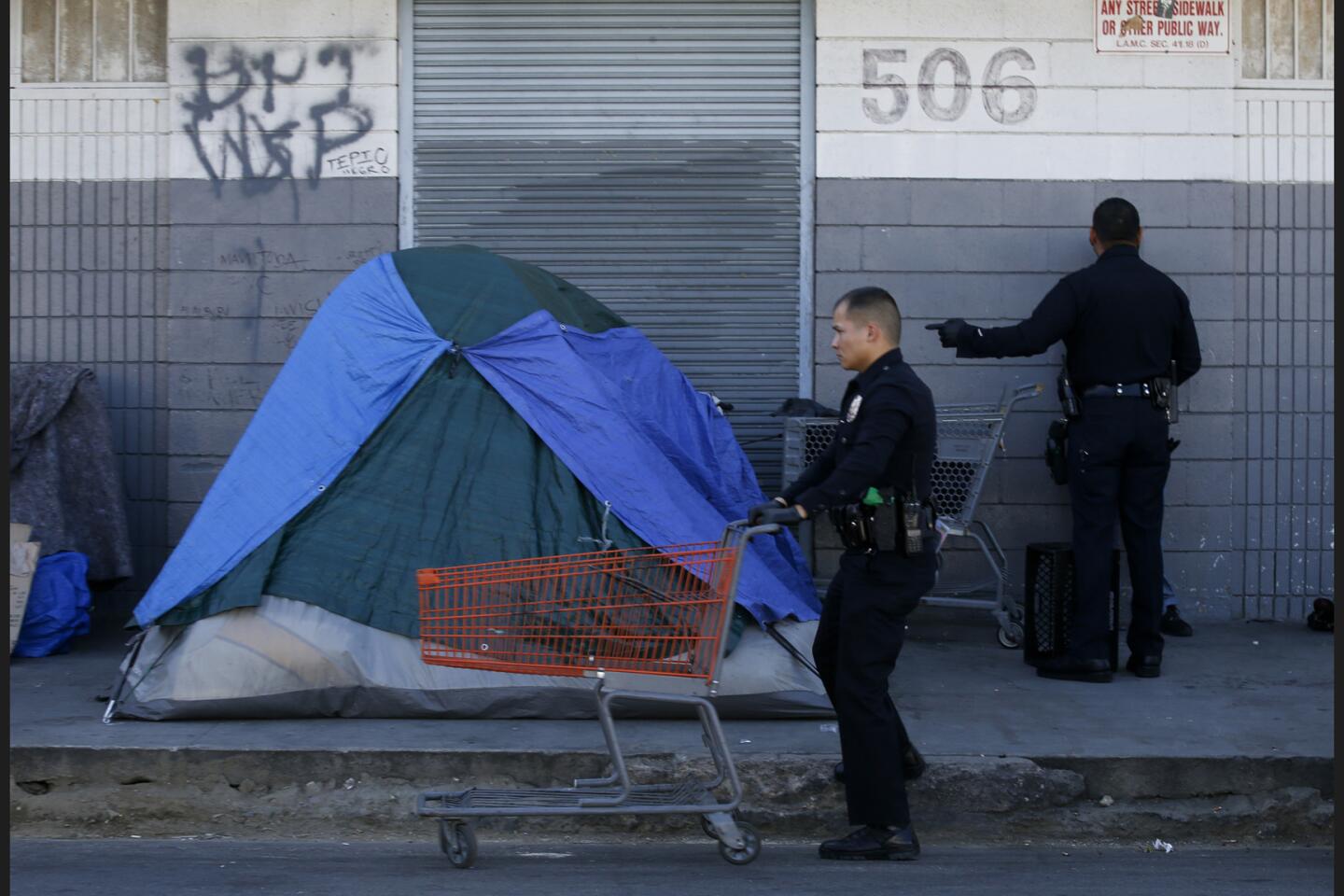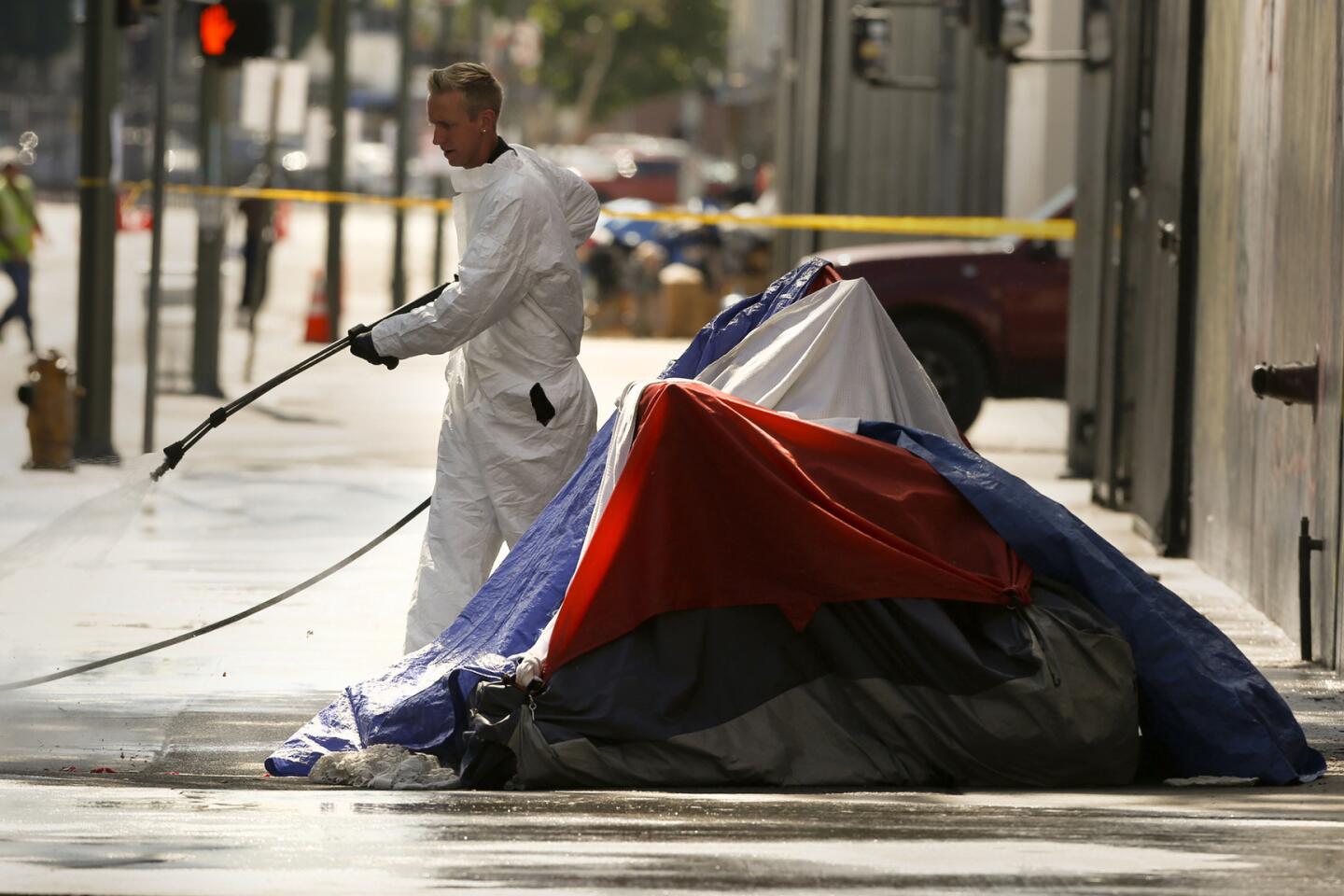L.A. clears a path for $1.2-billion bond measure to pay for homeless initiatives
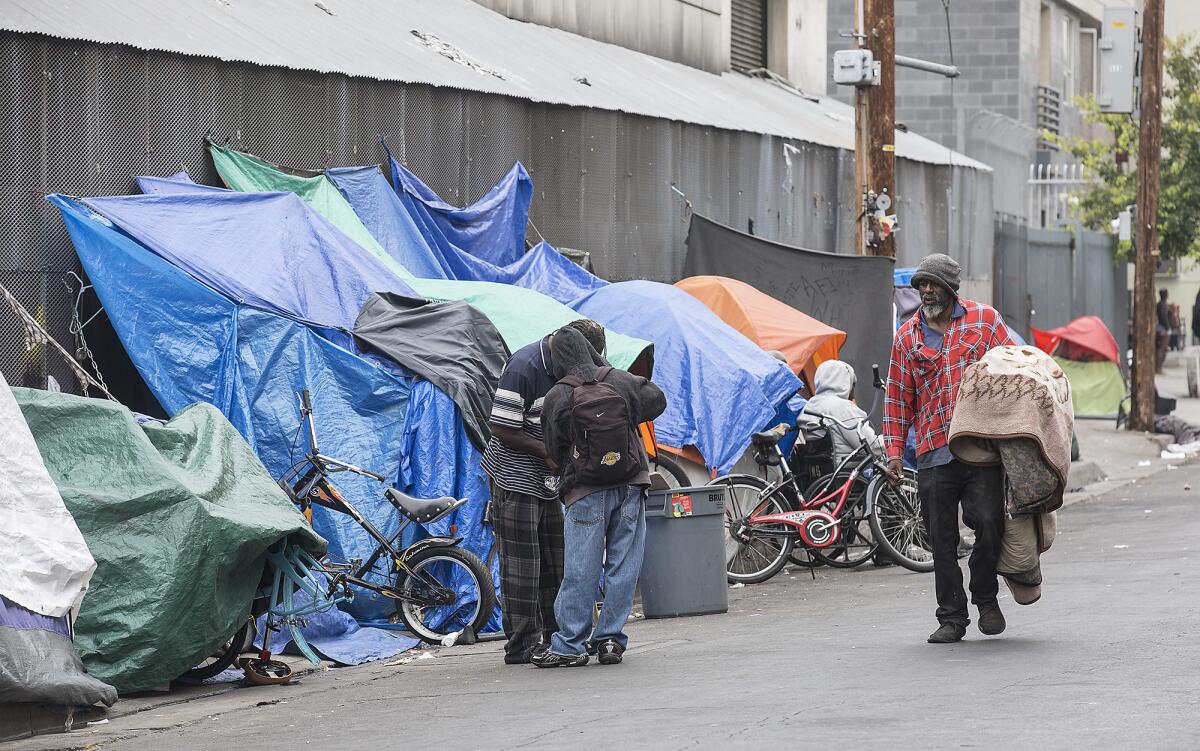
The Los Angeles City Council cleared the way Friday for a $1.2-billion bond measure on the Nov. 8 ballot, abandoning a competing tax proposal that would have generated less money for homeless initiatives.
On an 12-0 vote, the council dropped plans for a parcel tax, which would have generated $900 million for housing construction, storage lockers and other programs.
The vote leaves the bond as the city’s preferred strategy for financing new apartments and other facilities for the homeless. Councilman Jose Huizar, who co-authored the bond proposal, said the measure had consistently outperformed the parcel tax in voter surveys, sometimes by more than 10 percentage points.
“I’ve seen like two or three polls that indicate that the bond is doing much better [with voters] than the parcel tax,” Huizar said. “But we didn’t base our decision simply on the poll. We based our decision on what we thought was the best way to move forward.”
The bond measure, which needs support from two-thirds of voters to pass, would hike property taxes by varying amounts over 30 years. City officials say the average yearly increase would be $44.31 per year for a home assessed at $327,900, currently the median in Los Angeles.
The council’s action comes five months after the council adopted a $1.85-billion plan to provide relief to the city’s homeless population, estimated at more than 26,000 in the most recent count. Since then, city leaders have been exploring different ways to pay for that plan.
Last month, city lawmakers narrowed their options to two property tax measures. Although they had been planning to wait as much as six more weeks before making a final choice, they tabled the parcel tax without debate on Friday.
The city plans to devote 80% of the bond’s proceeds to construction of permanent supportive housing, which offers on-site resources such as substance abuse counseling, Huizar said. Councilman Marqueece Harris-Dawson, also a co-author of the bond proposal, said he wants the measure to pay for at least a portion of 10,000 residential units to house homeless residents.
Although a bond measure is doing better than a parcel tax in voter surveys, it also has more restrictions on how the money can be spent. For now, the city will be required to use the proceeds to purchase land and develop housing or other facilities for homeless people, said City Administrative Officer Miguel Santana, the top budget official at City Hall.
“We would buy land throughout the city, make that land available, and partner with nonprofit developers like Skid Row Housing Trust and so many others” who construct housing for the homeless, Santana said.
The city would enter into long-term, no-cost leases with those developers, who would then build the housing, Santana said.
City officials are hoping that in the coming months, they can also secure the ability to use the bond proceeds to provide loans and grants to developers of homeless housing.
Twitter: @DavidZahniser
ALSO
In San Francisco, a coordinated media effort to solve homelessness stirs the city
After L.A. cleared out homeless encampments, here’s what happened to some Tujunga Wash dwellers
‘An end to all the excuses,’ says L.A.’s chief bureaucrat in push for $1.8-billion homelessness plan
More to Read
Sign up for Essential California
The most important California stories and recommendations in your inbox every morning.
You may occasionally receive promotional content from the Los Angeles Times.
